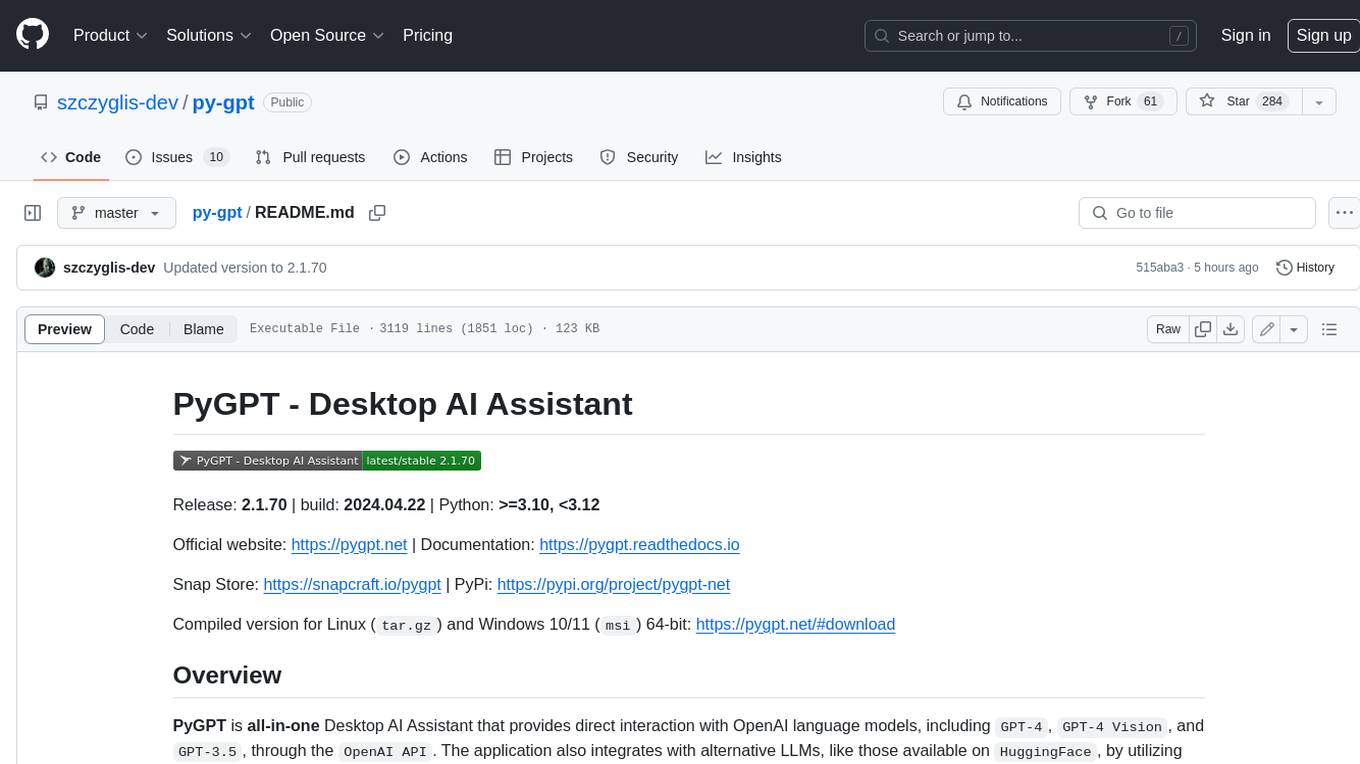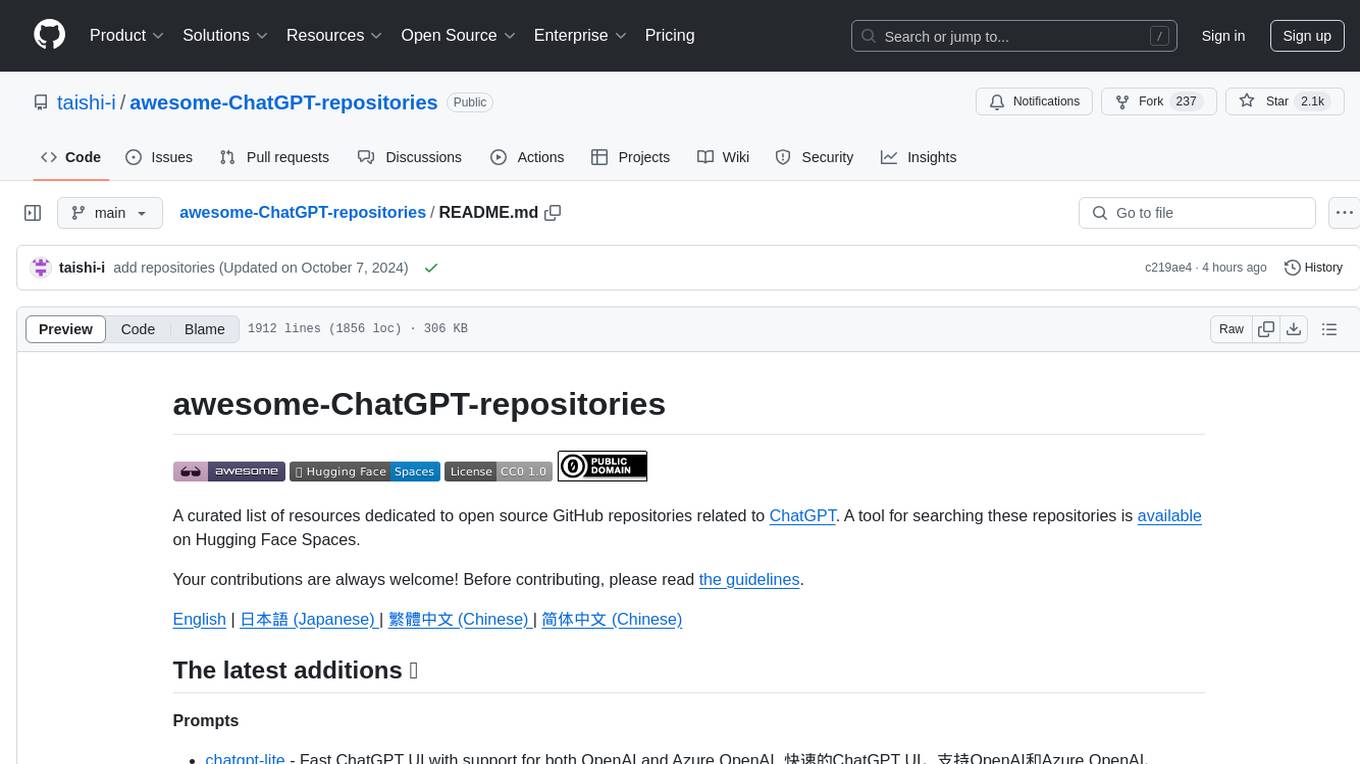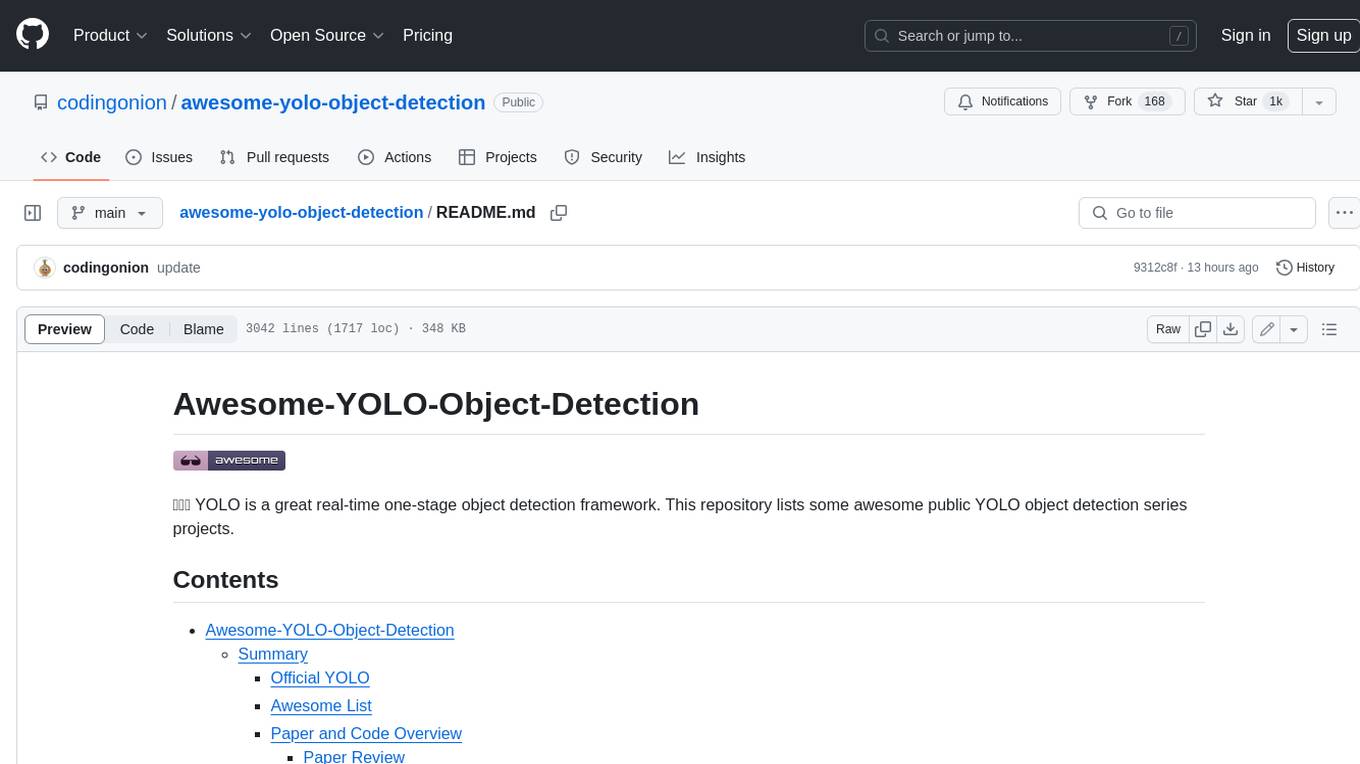Best AI tools for< Arduino Programmer >
Infographic
2 - AI tool Sites
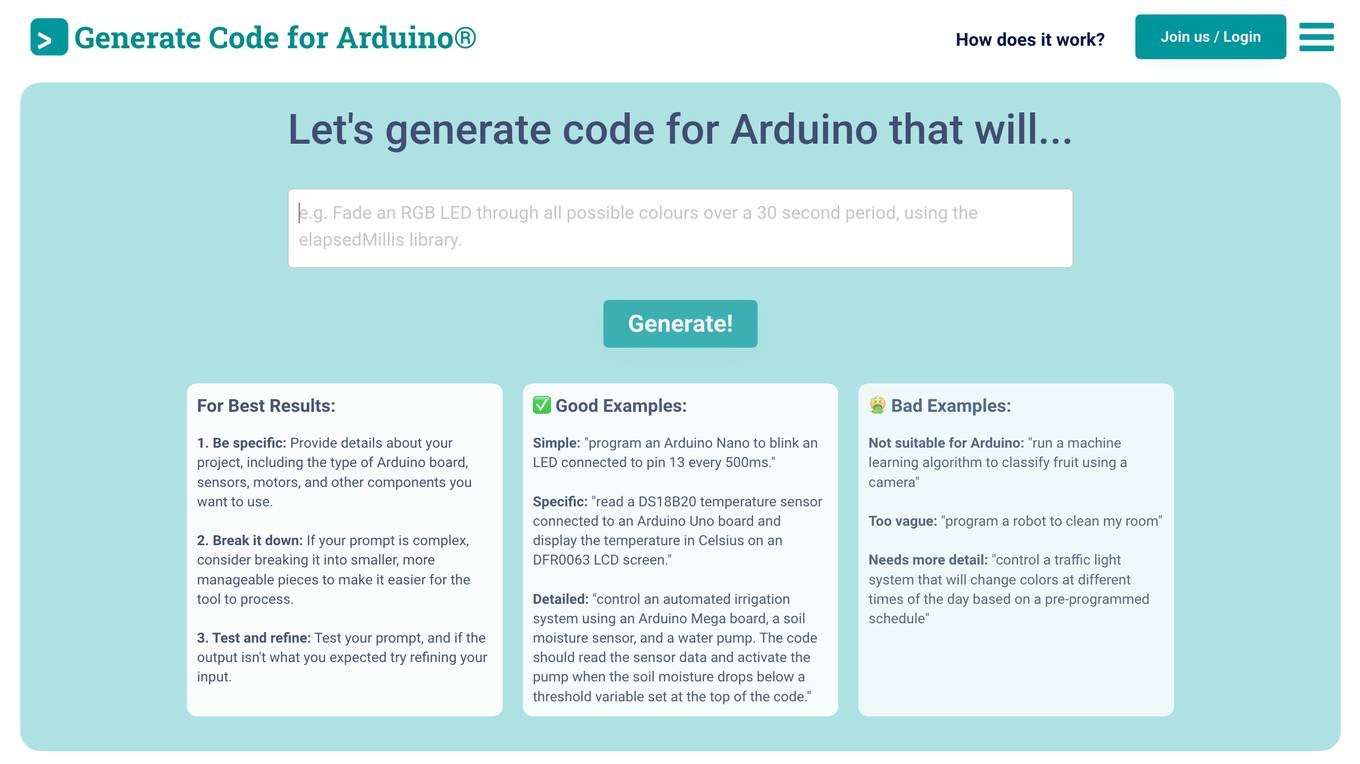
Code Generator for Arduino
Code Generator for Arduino is an AI-powered tool that allows users to generate code for Arduino projects effortlessly. The website uses GPT-3.5-turbo, OpenAI's large-scale language-generation model, to create Arduino code. Users can easily create code for their Arduino devices by simply inputting their project requirements. The generated code must be reviewed before being uploaded to any hardware devices. Code Generator for Arduino is not affiliated with Arduino SA but provides a convenient solution for Arduino enthusiasts to streamline their coding process.
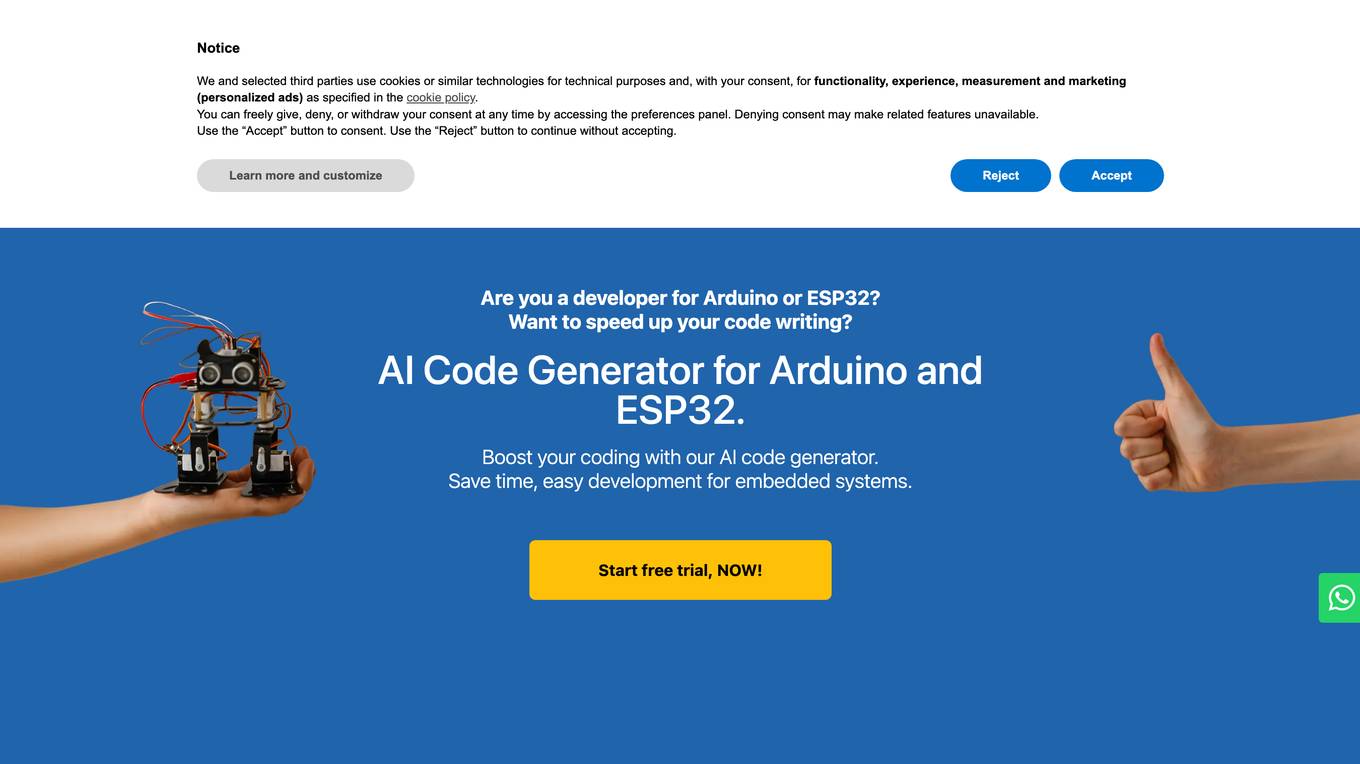
Please Don't Code
Please Don't Code is an AI Code Generator specifically designed for Arduino and ESP32 electronic boards. It offers a cutting-edge code generation automation service to empower freelance programmers and small/medium businesses in bringing their prototype projects to life in significantly less time compared to manual coding approaches. The platform aims to expedite and automate low-level code development processes, providing quality solutions and efficiency at a budget-friendly scale for professionals and Small/Medium Enterprises.
18 - Open Source Tools
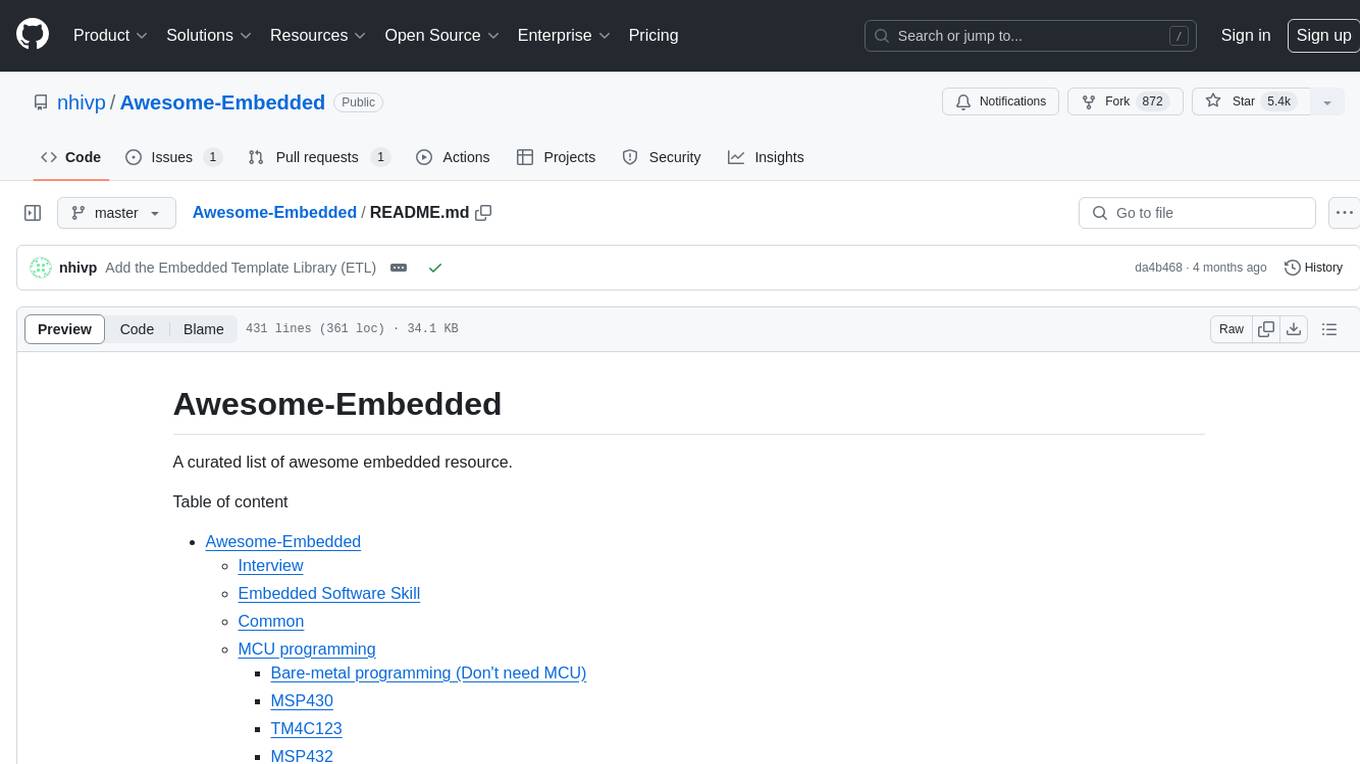
Awesome-Embedded
Awesome-Embedded is a curated list of resources for embedded systems enthusiasts. It covers a wide range of topics including MCU programming, RTOS, Linux kernel development, assembly programming, machine learning & AI on MCU, utilities, tips & tricks, and more. The repository provides valuable information, tutorials, and tools for individuals interested in embedded systems development.
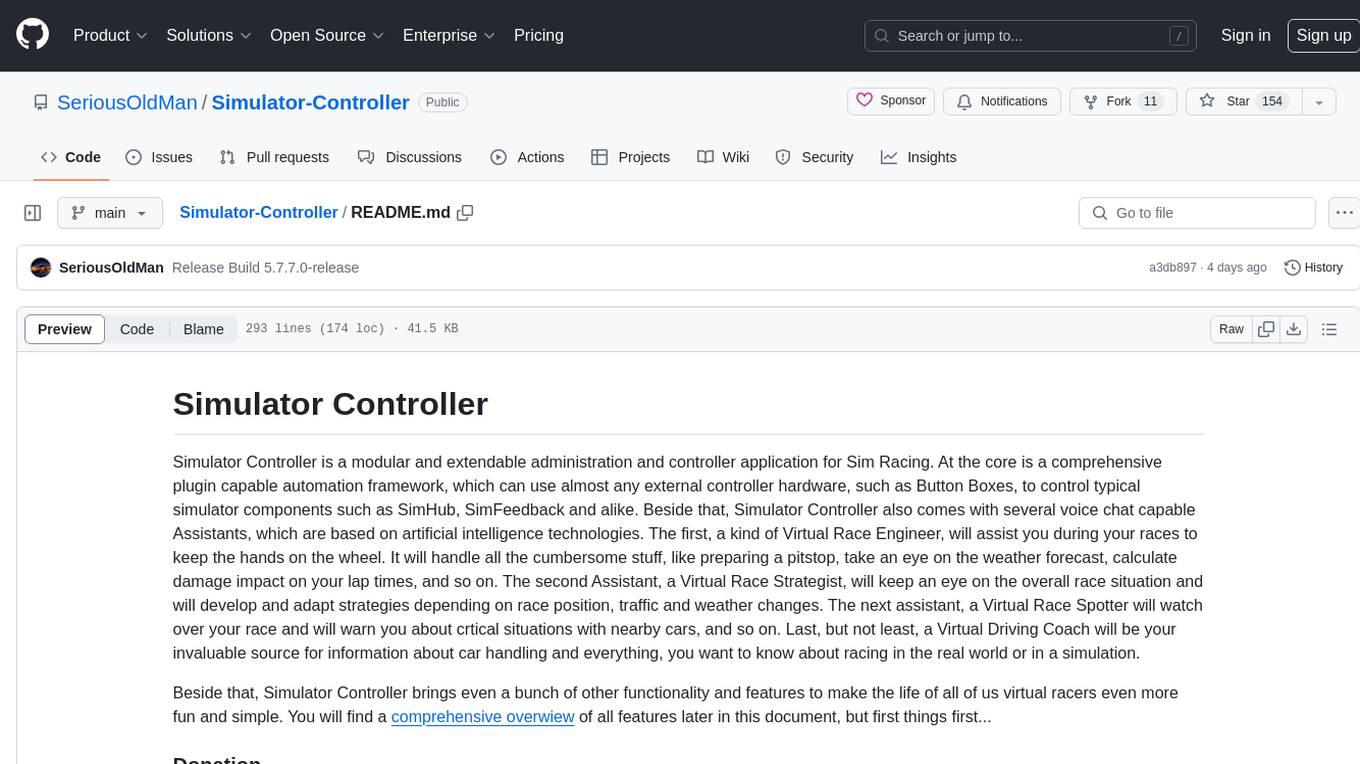
Simulator-Controller
Simulator Controller is a modular administration and controller application for Sim Racing, featuring a comprehensive plugin automation framework for external controller hardware. It includes voice chat capable Assistants like Virtual Race Engineer, Race Strategist, Race Spotter, and Driving Coach. The tool offers features for setup, strategy development, monitoring races, and more. Developed in AutoHotkey, it supports various simulation games and integrates with third-party applications for enhanced functionality.
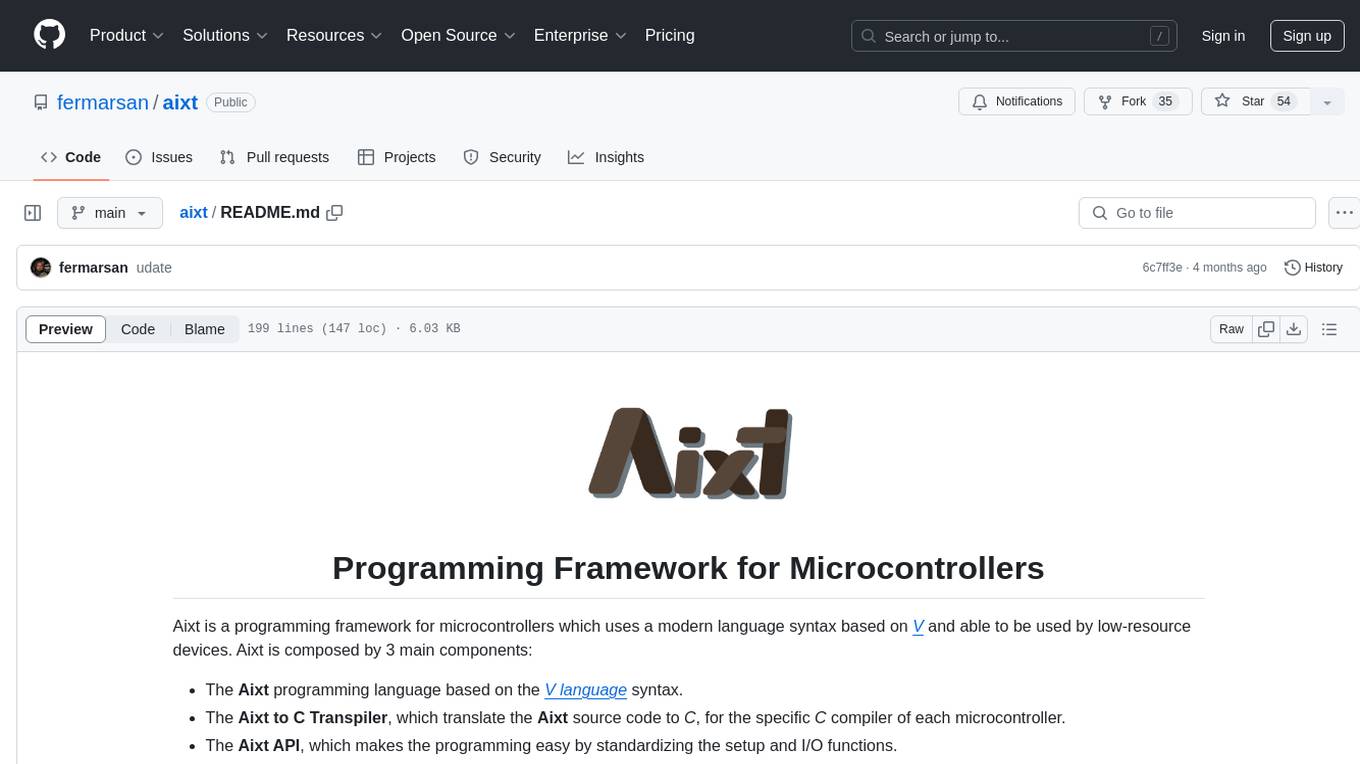
aixt
Aixt is a programming framework for microcontrollers using a modern language syntax based on V, with components including the Aixt programming language, Aixt to C Transpiler, and Aixt API. It is designed to be modular, allowing easy incorporation of new devices and boards through a TOML configuration file. The Aixt to C Transpiler translates Aixt source code to C for specific microcontroller compilers. The Aixt language implements a subset of V with differences in variables, strings, arrays, default integers size, structs, functions, and preprocessor commands. The Aixt API provides functions for digital I/O, analog inputs, PWM outputs, and serial ports.
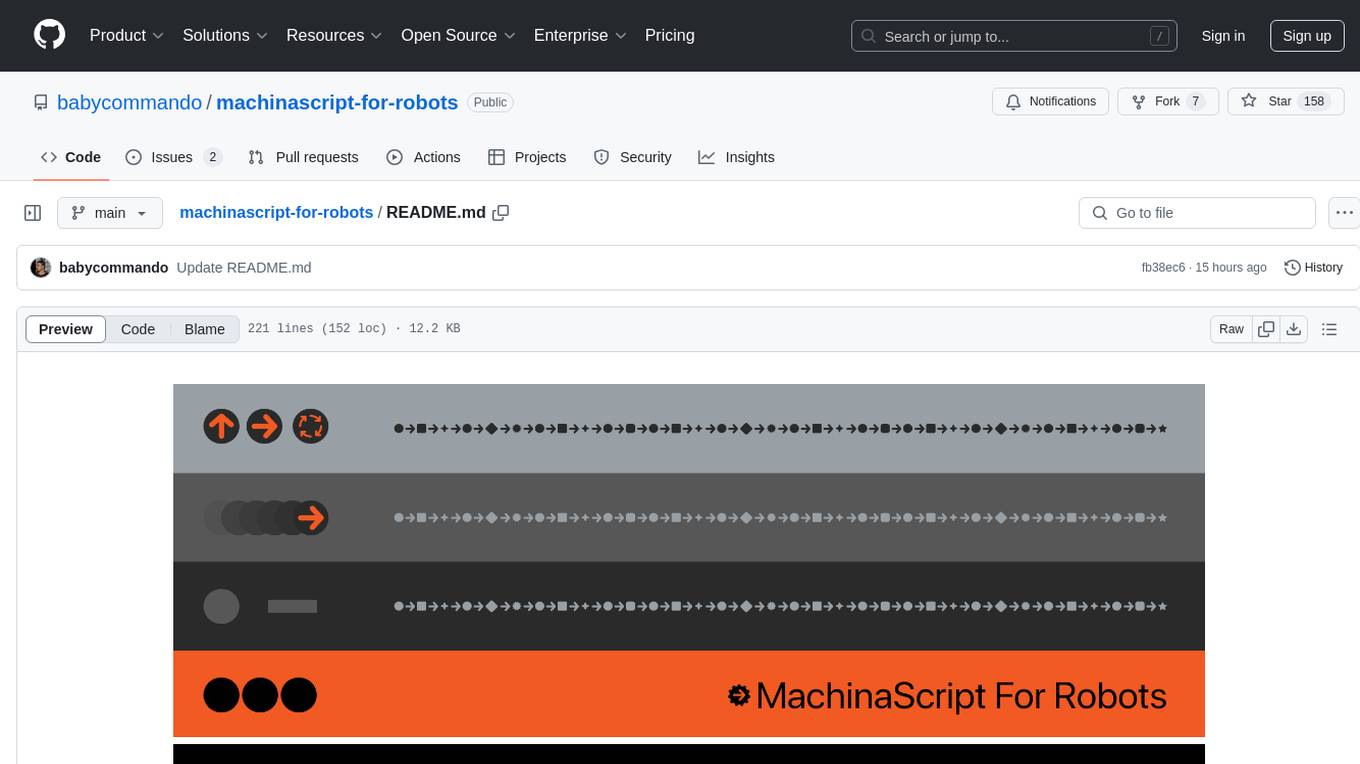
machinascript-for-robots
MachinaScript For Robots is a dynamic set of tools and a LLM-JSON-based language designed to empower humans in the creation of their own robots. It facilitates the animation of generative movements, the integration of personality, and the teaching of new skills with a high degree of autonomy. With MachinaScript, users can control a wide range of electronic components, including Arduinos, Raspberry Pis, servo motors, cameras, sensors, and more. The tool enables the creation of intelligent robots accessible to everyone, allowing for complex tasks to be performed with elegance and precision.
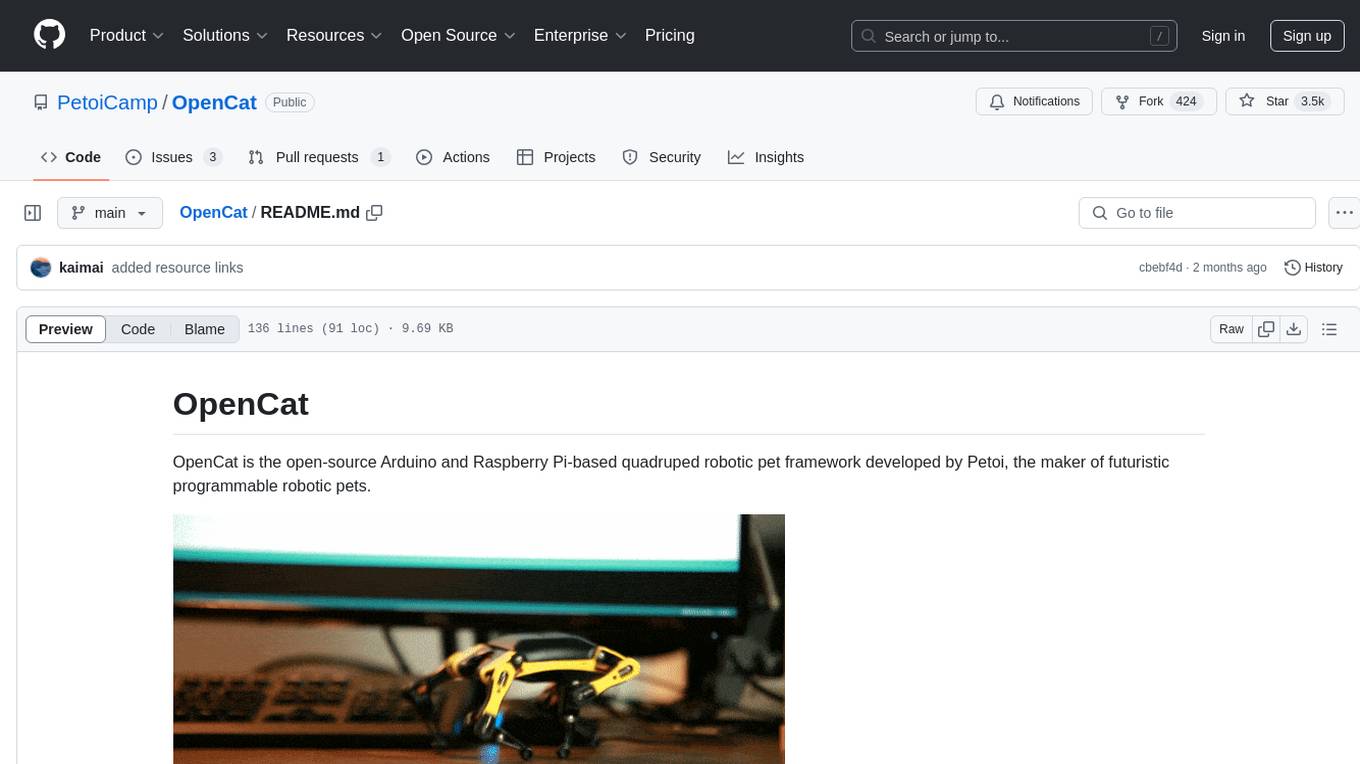
OpenCat
OpenCat is an open-source Arduino and Raspberry Pi-based quadruped robotic pet framework developed by Petoi. It aims to foster collaboration in quadruped robotics research, education, and engineering development of agile and affordable quadruped robot pets. The project provides a base open source platform for creating programmable gaits, locomotion, and deployment of inverse kinematics quadruped robots, enabling simulations to the real world via block-based coding/C/C++/Python programming languages. Users have deployed various robotics/AI/IoT applications and the project has successfully crowdfunded mini robot kits, shipped worldwide, and established a production line for affordable robotic kits and accessories.
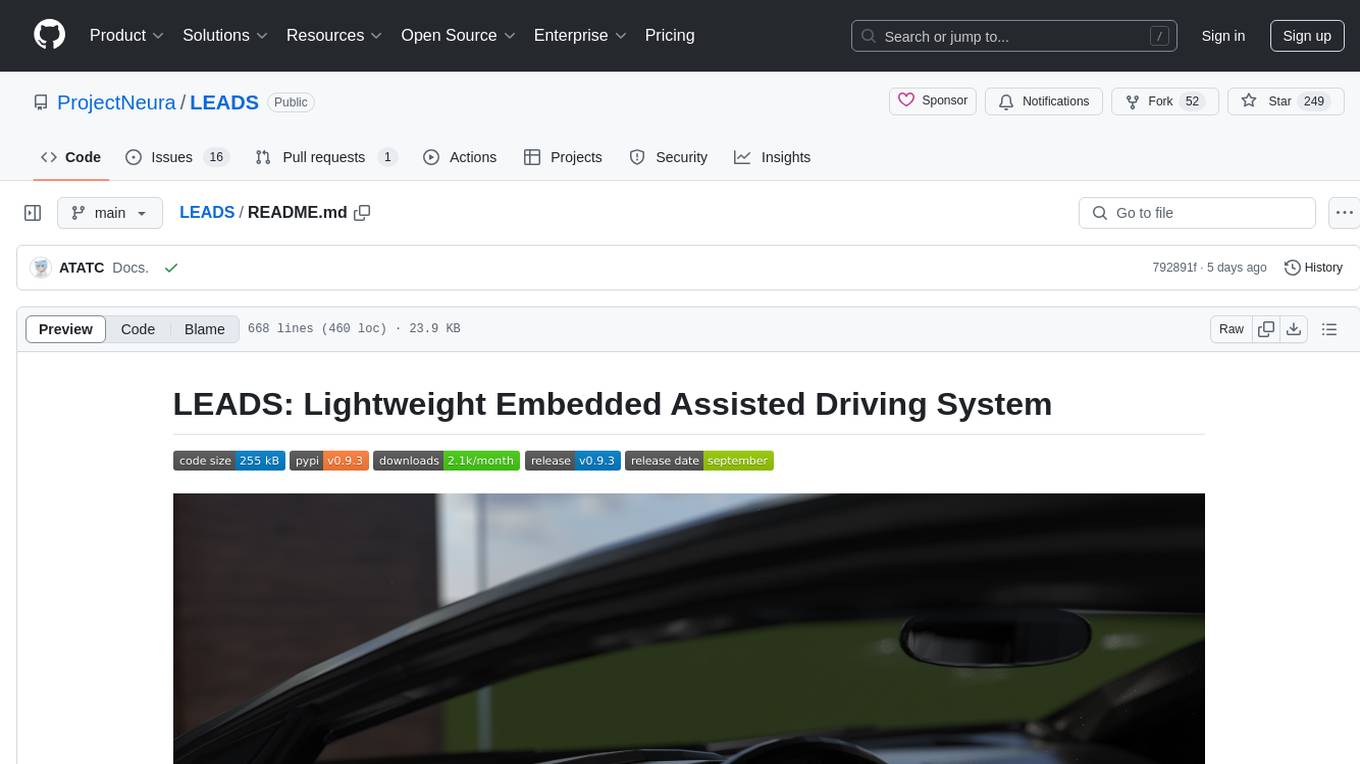
LEADS
LEADS is a lightweight embedded assisted driving system designed to simplify the development of instrumentation, control, and analysis systems for racing cars. It is written in Python and C/C++ with impressive performance. The system is customizable and provides abstract layers for component rearrangement. It supports hardware components like Raspberry Pi and Arduino, and can adapt to various hardware types. LEADS offers a modular structure with a focus on flexibility and lightweight design. It includes robust safety features, modern GUI design with dark mode support, high performance on different platforms, and powerful ESC systems for traction control and braking. The system also supports real-time data sharing, live video streaming, and AI-enhanced data analysis for driver training. LEADS VeC Remote Analyst enables transparency between the driver and pit crew, allowing real-time data sharing and analysis. The system is designed to be user-friendly, adaptable, and efficient for racing car development.
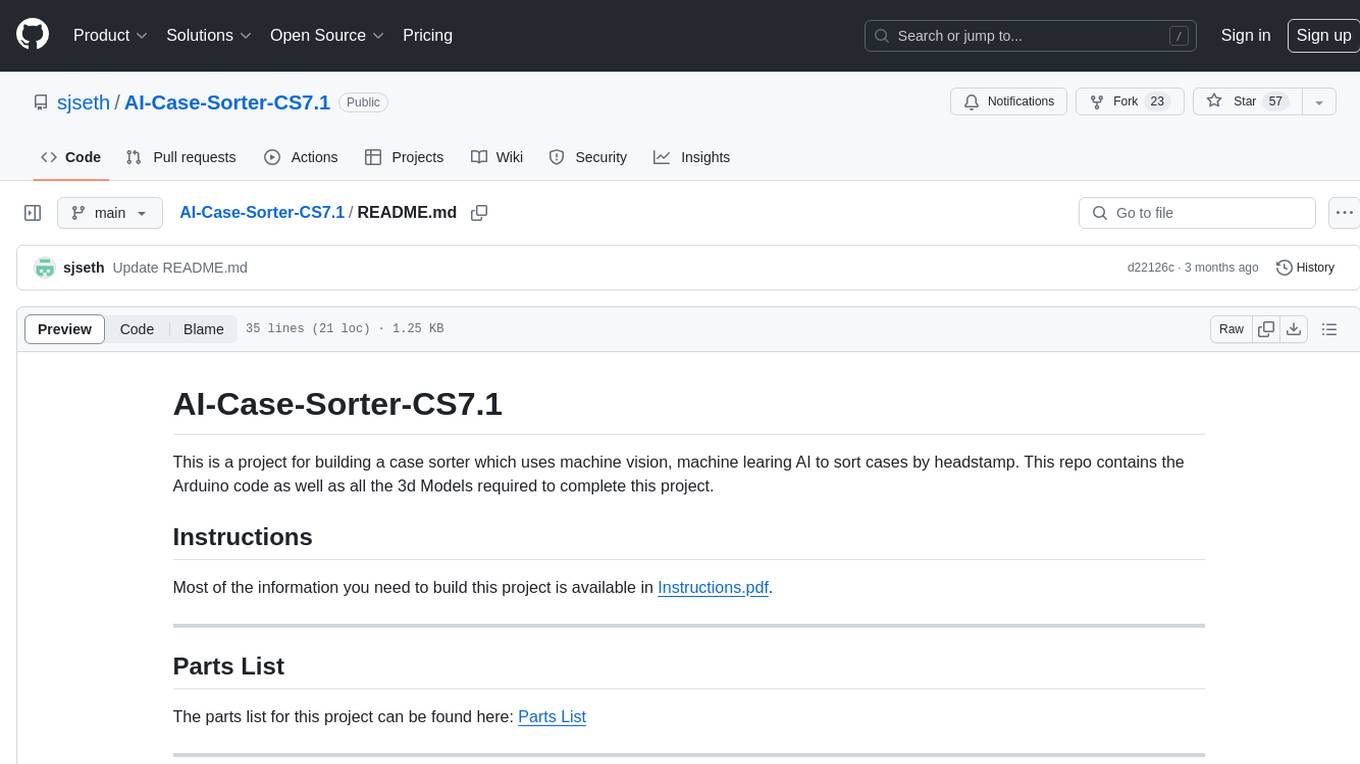
AI-Case-Sorter-CS7.1
AI-Case-Sorter-CS7.1 is a project focused on building a case sorter using machine vision and machine learning AI to sort cases by headstamp. The repository includes Arduino code and 3D models necessary for the project.
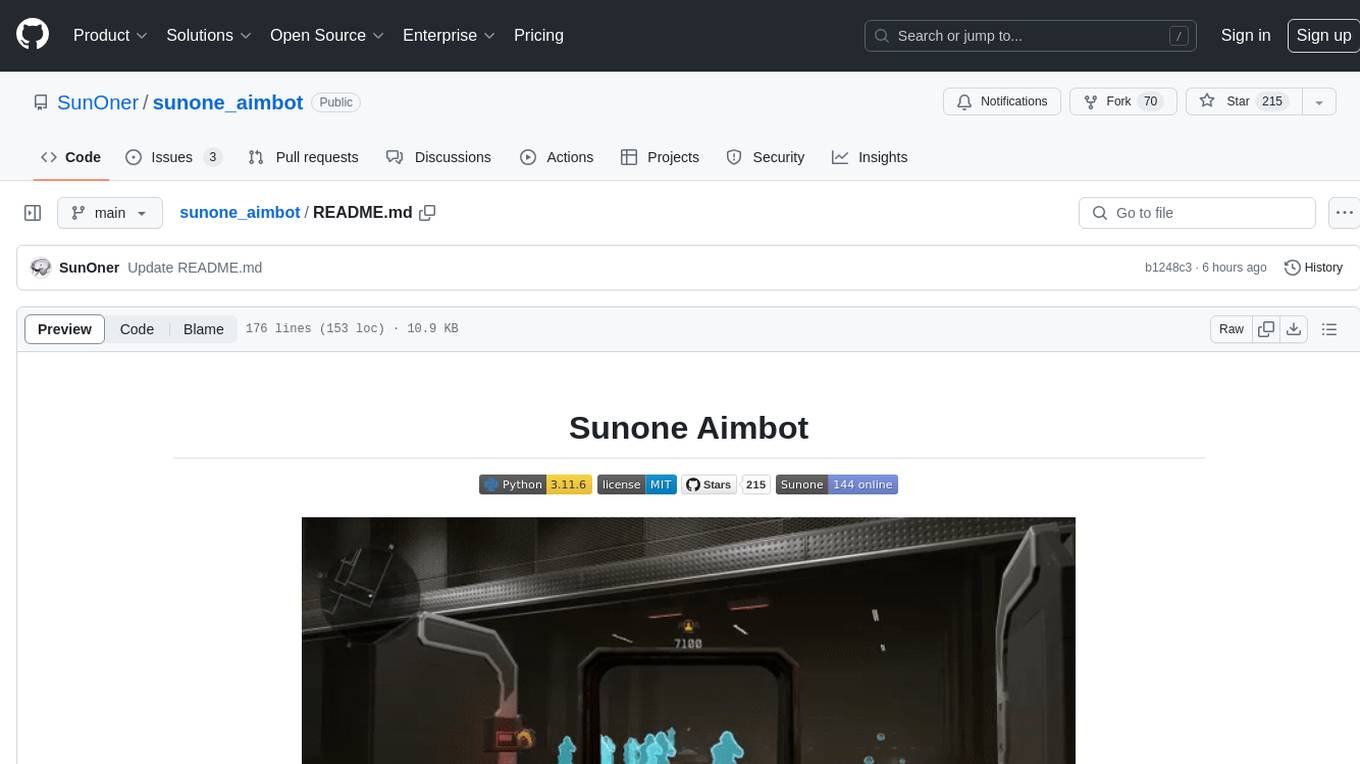
sunone_aimbot
Sunone Aimbot is an AI-powered aim bot for first-person shooter games. It leverages YOLOv8 and YOLOv10 models, PyTorch, and various tools to automatically target and aim at enemies within the game. The AI model has been trained on more than 30,000 images from popular first-person shooter games like Warface, Destiny 2, Battlefield 2042, CS:GO, Fortnite, The Finals, CS2, and more. The aimbot can be configured through the `config.ini` file to adjust various settings related to object search, capture methods, aiming behavior, hotkeys, mouse settings, shooting options, Arduino integration, AI model parameters, overlay display, debug window, and more. Users are advised to follow specific recommendations to optimize performance and avoid potential issues while using the aimbot.
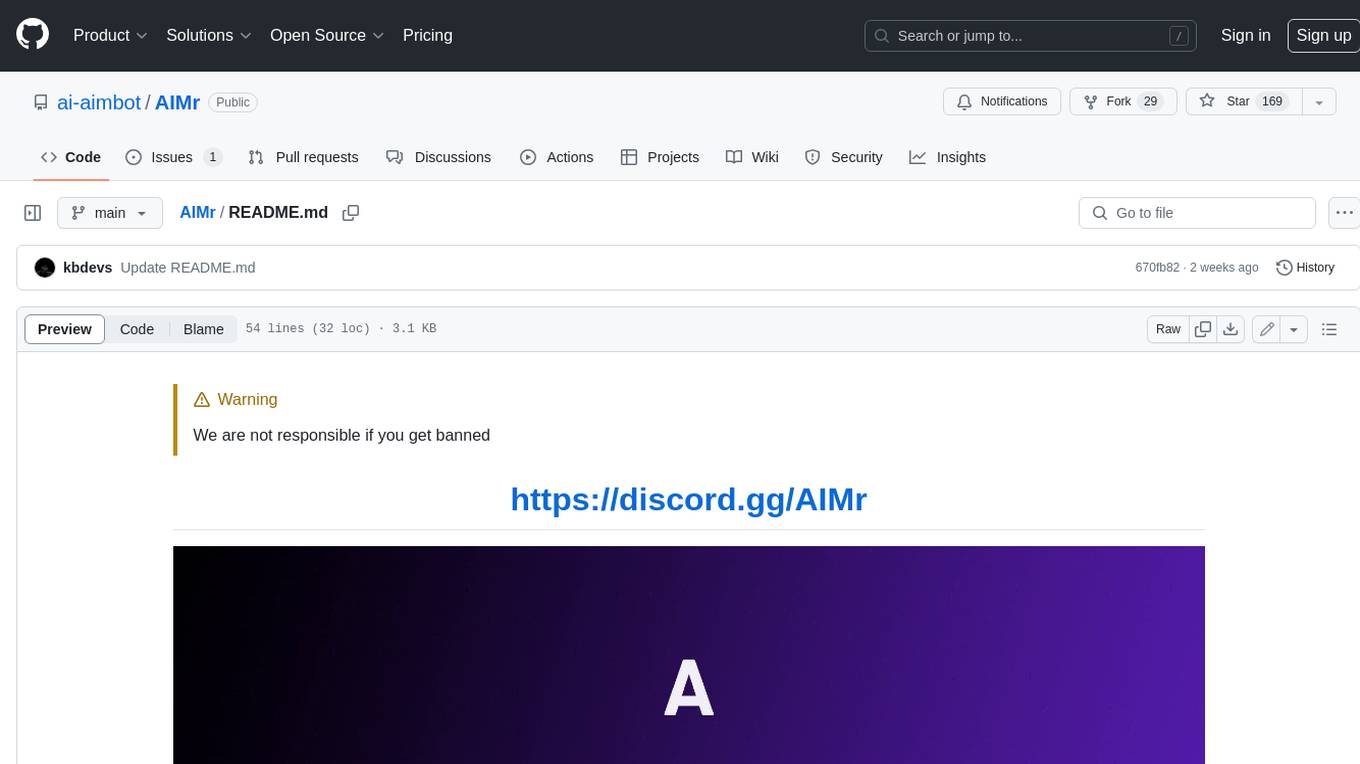
AIMr
AIMr is an AI aimbot tool written in Python that leverages modern technologies to achieve an undetected system with a pleasing appearance. It works on any game that uses human-shaped models. To optimize its performance, users should build OpenCV with CUDA. For Valorant, additional perks in the Discord and an Arduino Leonardo R3 are required.
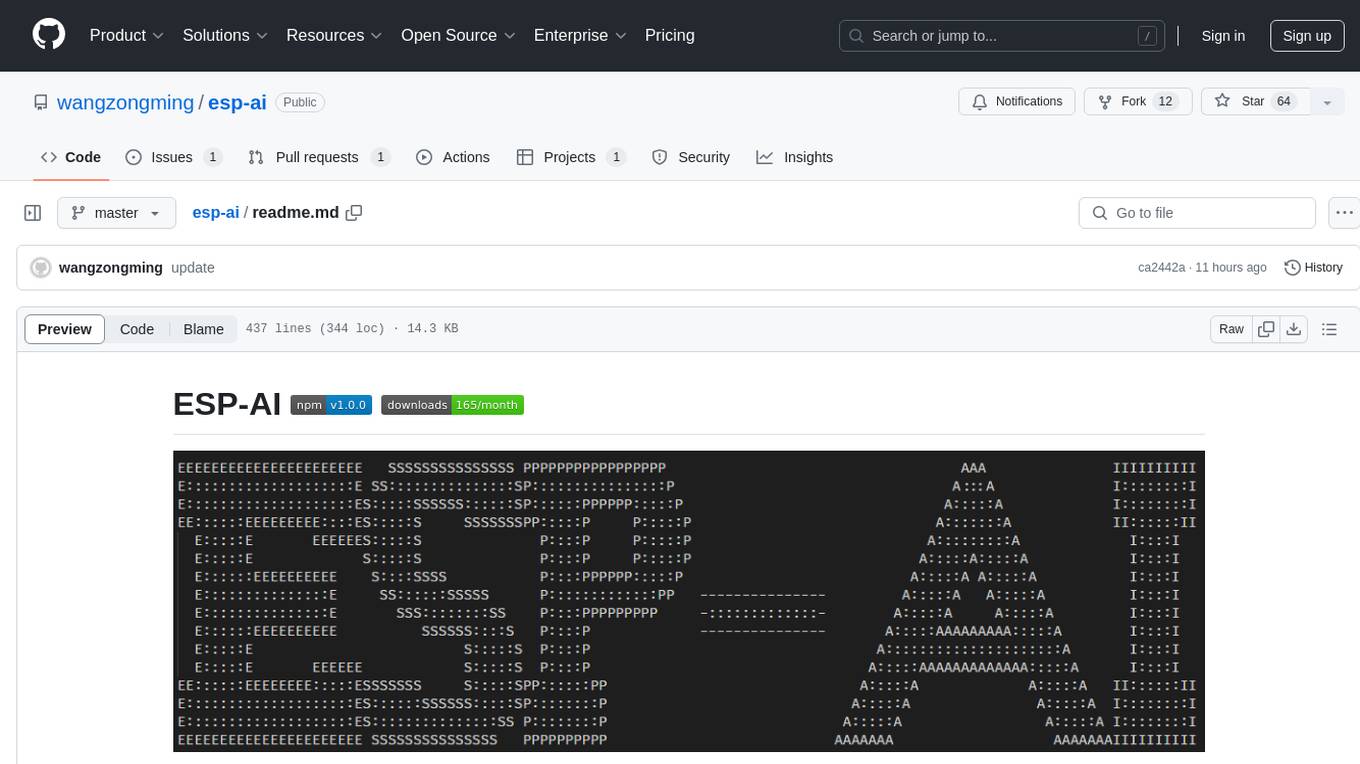
esp-ai
ESP-AI provides a complete AI conversation solution for your development board, including IAT+LLM+TTS integration solutions for ESP32 series development boards. It can be injected into projects without affecting existing ones. By providing keys from platforms like iFlytek, Jiling, and local services, you can run the services without worrying about interactions between services or between development boards and services. The project's server-side code is based on Node.js, and the hardware code is based on Arduino IDE.
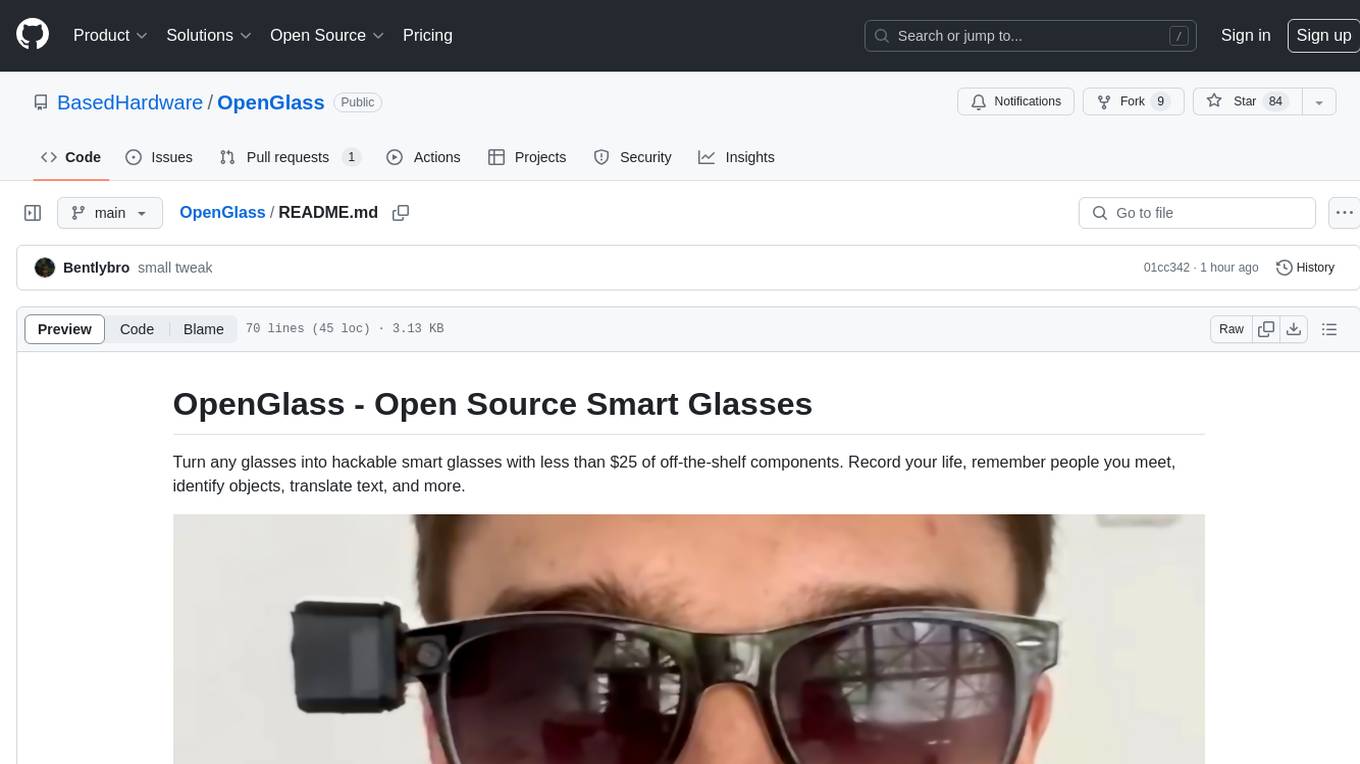
OpenGlass
OpenGlass is an open-source project that allows users to transform any regular glasses into smart glasses using affordable off-the-shelf components. With a cost of less than $25, users can enhance their glasses to record their daily activities, recognize people, identify objects, translate text, and more. The project provides detailed instructions on hardware setup and software installation, making it accessible for DIY enthusiasts and tech enthusiasts alike. By following the steps outlined in the repository, users can create their own smart glasses and explore various functionalities offered by the project.
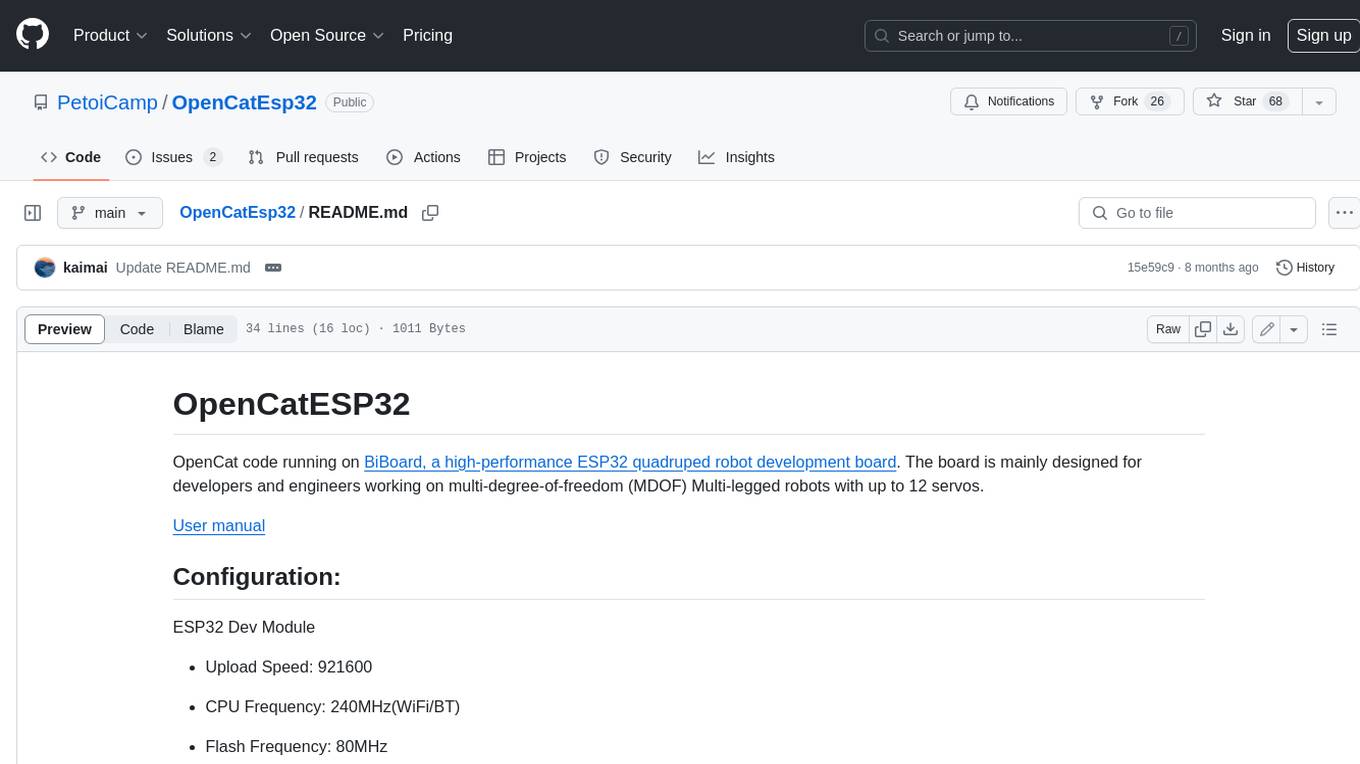
OpenCatEsp32
OpenCat code running on BiBoard, a high-performance ESP32 quadruped robot development board. The board is mainly designed for developers and engineers working on multi-degree-of-freedom (MDOF) Multi-legged robots with up to 12 servos.
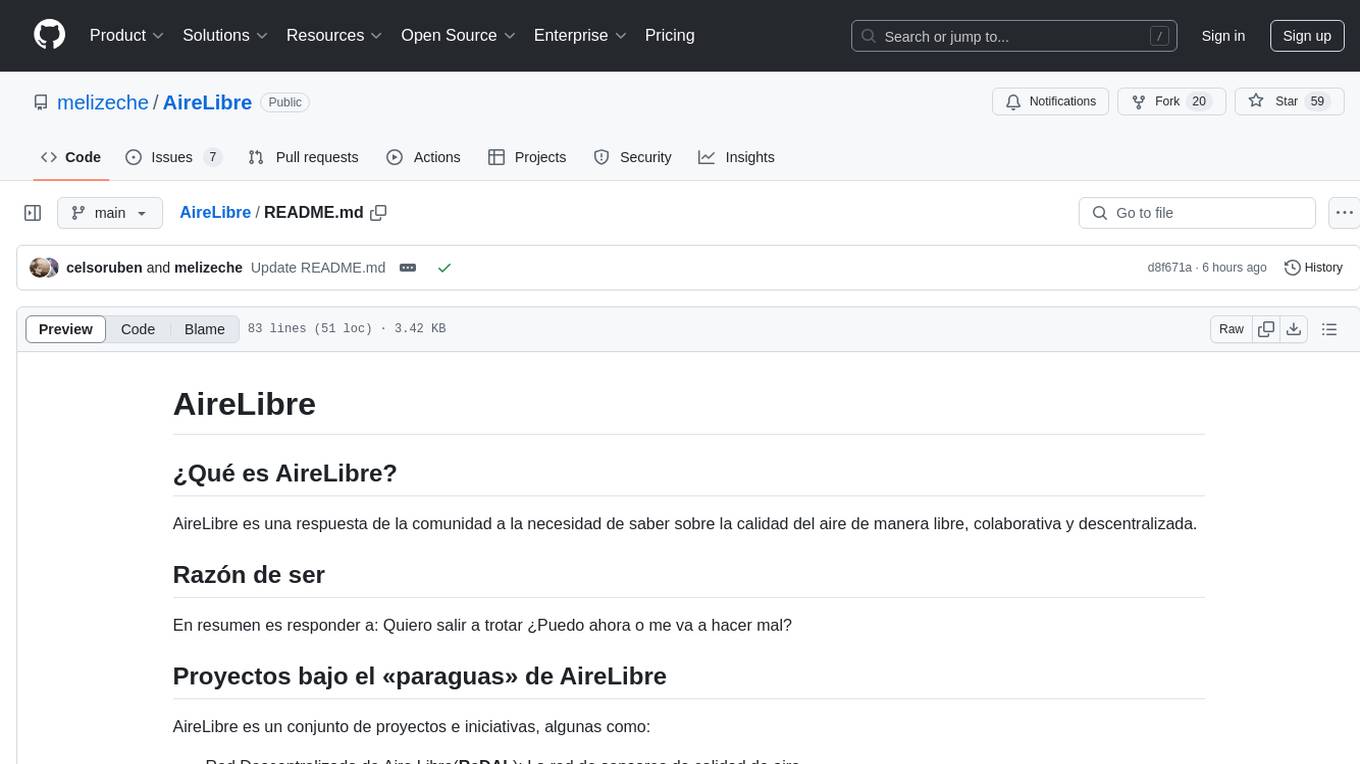
AireLibre
AireLibre is a community response to the need for freely, collaboratively, and decentralized air quality information. It includes projects like Red Descentralizada de Aire Libre (ReDAL), Linka, Linka Firmware, LinkaBot, AQmap, and Android/iOS apps. Users can join the network with a sensor communicating with Linka. Materials and tools are needed to build a sensor. The initiative is decentralized and open for community collaboration. Users can extend or add projects to AireLibre. The license allows for creating personal networks. AireLibre is not for professional/industrial/scientific/military use, and the sensors are not calibrated in Switzerland.
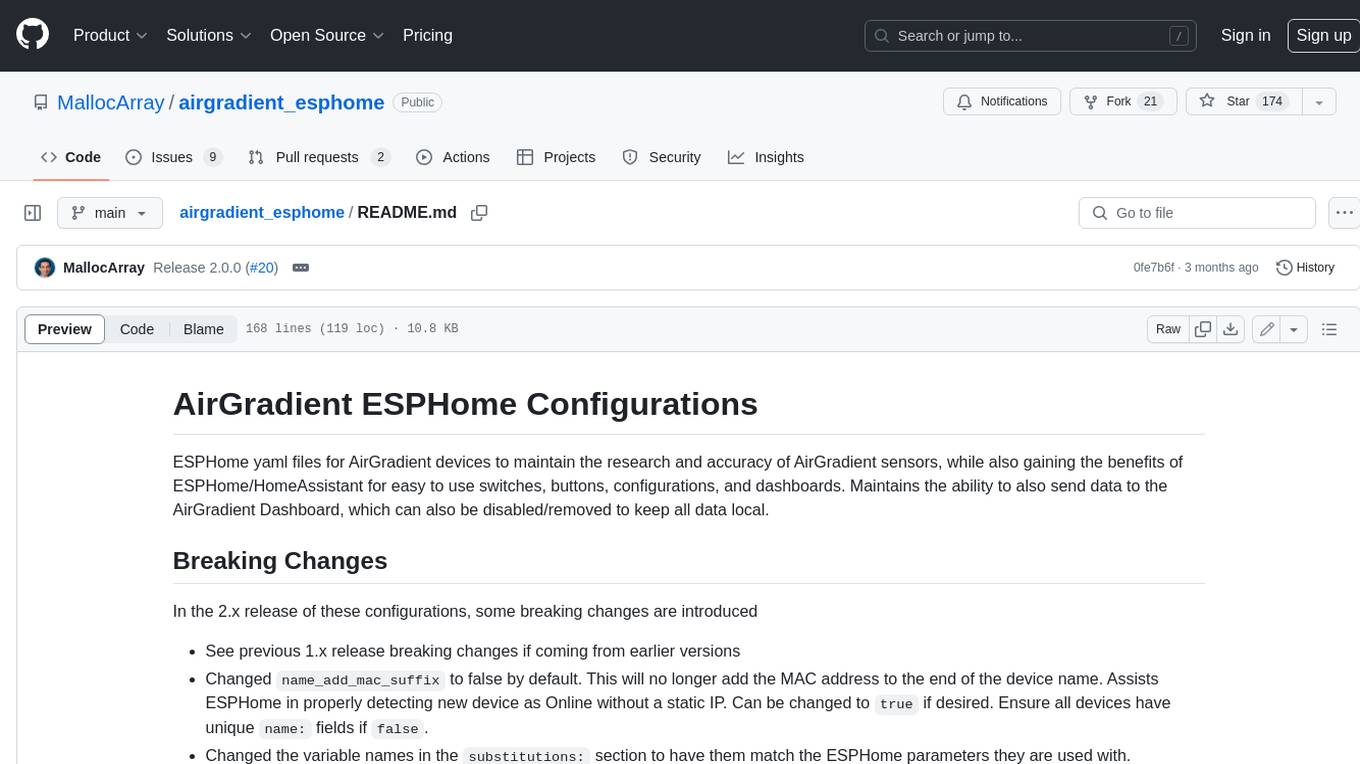
airgradient_esphome
ESPHome yaml files for AirGradient devices to maintain the research and accuracy of AirGradient sensors, while also gaining the benefits of ESPHome/HomeAssistant for easy to use switches, buttons, configurations, and dashboards. Maintains the ability to also send data to the AirGradient Dashboard, which can also be disabled/removed to keep all data local.
3 - OpenAI Gpts
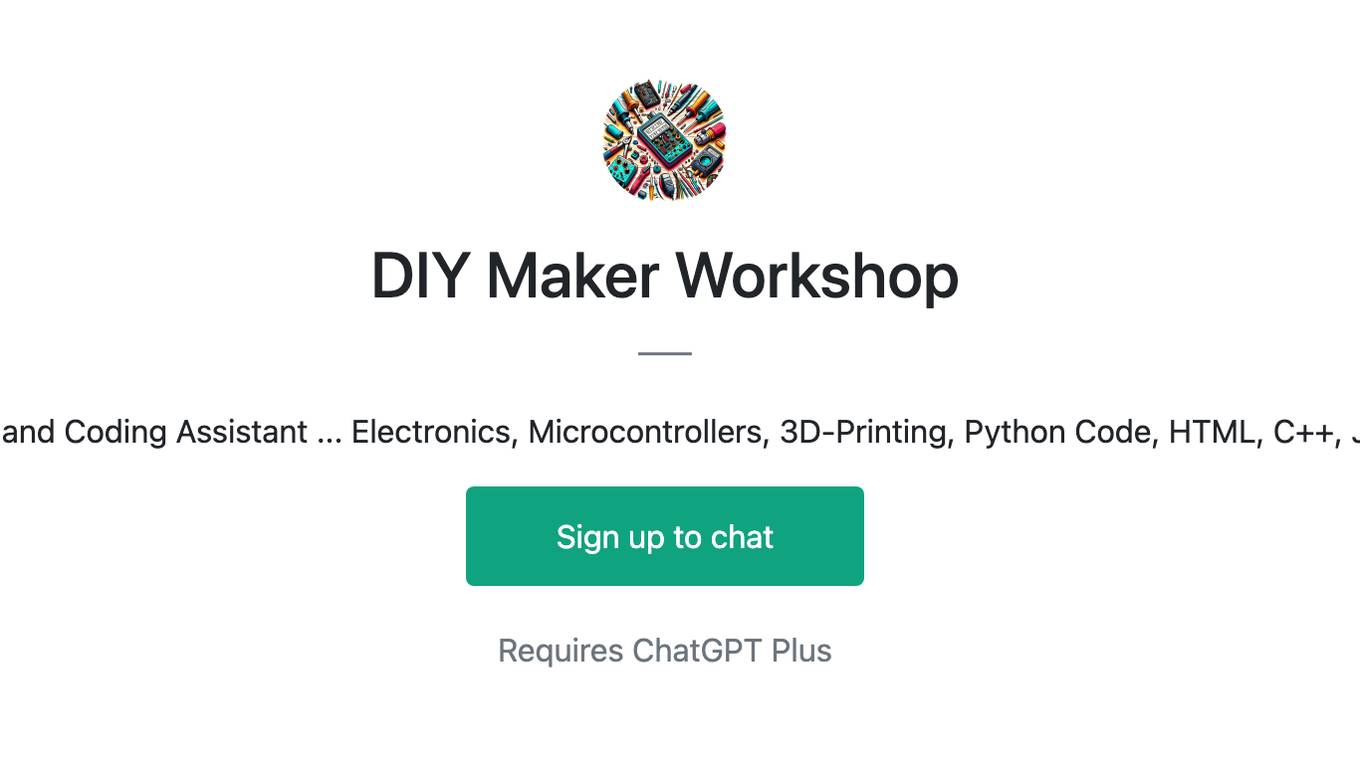
DIY Maker Workshop
Your Expert DIY Maker and Coding Assistant ... Electronics, Microcontrollers, 3D-Printing, Python Code, HTML, C++, JSON, C, Arduino IDE
